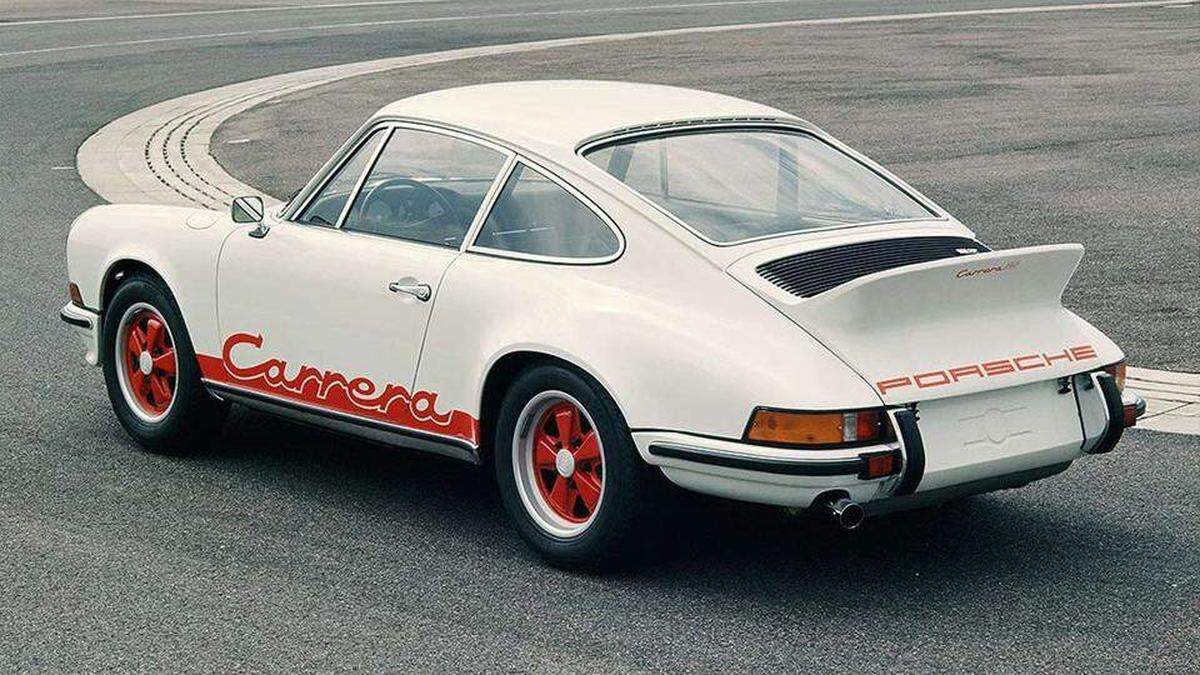A car dealer in southern France is under investigation for fraud and is facing civil proceedings after a Luxembourg car collector reportedly paid €730,000 for a 1970s Porsche which was worth just €100,000.
Back in 2015, the businessman from Luxembourg, who had made his fortune in property development, bought a 1973 Porsche Carrera 911 2.7 RS Touring, a famous model from the German brand.
The car sold was presented as an original, with the same serial number on the main parts of the car. According to the complainant, the price of €730,000 was paid partly in cash, to the tune of €260,000.
However, the collector had doubts and in 2018 had the vehicle inspected by the German firm of experts, TÜV, which informed him that the car was a ‘replica’ that did not have identical serial numbers – which implied that it was less rare and therefore less valuable.
The businessman demanded an explanation from the dealer, before initiating civil proceedings against him and filing a criminal complaint with the Bordeaux public prosecutor’s office in 2019.
“You bought a Mercedes and they’re selling you a 2CV,” the plaintiff’s lawyer, Renaud Semerdjian, said at a recent hearing in the civil case.
Legal battle
The collector claims that he was belatedly informed that the vehicle had also been “seriously damaged in the past”.
The dealer’s lawyer, Étienne Riondet, refuted that claim, adding that damage to the vehicle had not been established, and dismissing the general case as extremely “banal”, especially for “a car that is 50 or 60 years old”.
“They say: ‘The car is 60 years old but there’s something wrong with it’. Well yes, there are things crooked. We’ve changed some parts because it’s very, very old”, said Riondet.
According to a preliminary expert report drawn up as part of the civil proceedings, the price of a model without matching numbers would be around €100,000, seven times less than the amount paid by the plaintiff, who is claiming €93,000 in compensation in addition to reimbursement for his purchase.
“Explain to me what ‘matching numbers’ means,” asked Mr Riondet, asserting that France’s civil code makes no provision for such a concept.
The collector “says that he paid large sums in cash, which is completely false”, the dealer’s lawyers told AFP, insisting that their client had “never accepted” cash and dismissing the allegations from the complainant, which the lawyers alleged are designed to “do harm”.
“Over the past 30 years, our client has sold 3,000 vehicles with the utmost integrity”, the dealer’s lawyers insisted.
They also pointed out that the payment of large sums in cash is “prohibited” under French law. Renaud Semerdjian, the plaintiff’s counsel, argued that “cash payments were legal in Luxembourg at that time”.
Ongoing investigation
At a civil hearing on 18 February, a judge at the Bordeaux judicial court decided to order the expert’s final report to be drawn up, without waiting for the summonses of several third parties – a private Austrian museum, where the vehicle came from, and an Italian repairer who is said to have restored it – as requested by the dealer’s lawyers.
Following the complaint lodged in 2019, a criminal investigation was opened into allegations of fraud. This criminal investigation is “still ongoing”, the Bordeaux public prosecutor’s office told AFP on Wednesday, with no charges at this stage.
Until 2010, the car dealer’s company, based in a wealthy area of the Arcachon Bay, had as its shareholder a Luxembourg-based company, now liquidated, which had been set up in 2006 by companies registered in the Seychelles, according to documents consulted by AFP.
The dealer has previously been convicted several times in the past, notably for “fraudulent deception”, a practice that consists of obtaining a buyer’s consent by “lies” or “concealment”. In one case, the dealer had “knowingly concealed” from a Finnish dealer “that the vehicle sold did not have matching numbers”, according to a ruling handed down in 2022 by the Bordeaux Court of Appeal.
(Translation, editing and adaptation by Lucrezia Reale)
